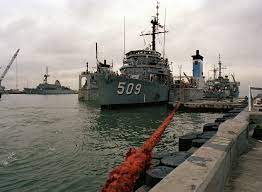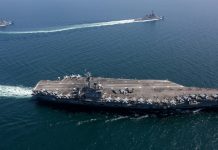
On January 11, a forthcoming trilateral agreement involving Turkey, Romania, and Bulgaria is slated to be formalized in Istanbul. The Turkish military will lead a collaborative demining mission in the Black Sea, as stipulated by the terms of this agreement.
Amidst the ongoing Russia-Ukraine conflict, the Black Sea has assumed paramount importance as a critical and exclusive maritime route for the export of Ukrainian grain. It is imperative to underscore that this trade serves as a financial lifeline for Ukraine’s domestic defense efforts in the war against Russia.
While all three participating nations are NATO members, it is crucial to recognize that this Black Sea demining operation falls outside the purview of NATO. From an expert standpoint, these proactive measures by the three Baltic nations, each endowed with extensive Black Sea access, are aimed at securing commercial maritime routes.
Notably, Turkey, as the ‘keeper of the Bosphorus key,’ prohibits warships from other NATO nations from entering the Black Sea via the Bosphorus. Turkey’s rationale is to avoid further escalating the already tense relations between NATO and Russia, particularly during a conflict along one of the Black Sea coasts.
Turkey previously asserted its maritime authority when it learned of Britain’s intention to donate two minesweepers to Ukraine. Despite the primary destination not being Ukraine, Turkey, leveraging its jurisdiction over the Black Sea, blocked their entry. This restriction also applies to Russia’s attempts to reinforce its Black Sea Fleet, as Turkish authorities have denied access to Russian warships from the Baltic Fleet.
European publications have highlighted that Black Sea trade routes have been heavily mined since the outset of the Russia-Ukraine conflict. According to BulgarianMilitary.com, the Russian military initiated an incursion into Ukraine on February 21, 2022, which Moscow terms a “special military operation,” strategically avoiding the term ‘war,’ despite the on-ground situation implying otherwise.
The active presence of mines in the Black Sea currently poses a dual threat, impeding trade routes and restricting the export of Ukrainian grain, while also presenting a significant risk to the non-combatant states of Romania and Bulgaria. Despite their lack of direct involvement in ongoing conflicts, these nations are intricately connected to the region through the Black Sea, subjecting them to potential geopolitical hazards.
The joint demining operation in the Black Sea, conducted by the three Balkan nations, assumes a crucial role in addressing this threat. This initiative provides Romania with an opportune moment to leverage its latest defense assets, namely, the advanced minesweepers HMS Blythe and HMS Pembroke, acquired from Great Britain in 2021.
Procured even before the escalation of hostilities, these state-of-the-art vessels have seamlessly integrated into the Romanian fleet. Their incorporation allows the minesweepers unrestricted access to and from the Black Sea, facilitated by their new home ports in Romania. Consequently, there is a high likelihood that Bucharest will obtain the necessary permissions from Ankara for the passage of these ships through the Bosphorus into the Black Sea.
The Treaty of Montreux, signed on July 20, 1936, solidifies the regulations governing the closure of the strait. This historical agreement grants Turkey exclusive sovereign jurisdiction over the Dardanelles, the Sea of Marmara, and the Bosphorus. In addition to addressing international transit rights, the treaty empowers Turkey to close the strait during times of war. Signatories to this pivotal treaty include Turkey, Great Britain, France, Japan, USSR, Bulgaria, Romania, Greece, and Yugoslavia. Italy also joined this significant agreement in 1938.




